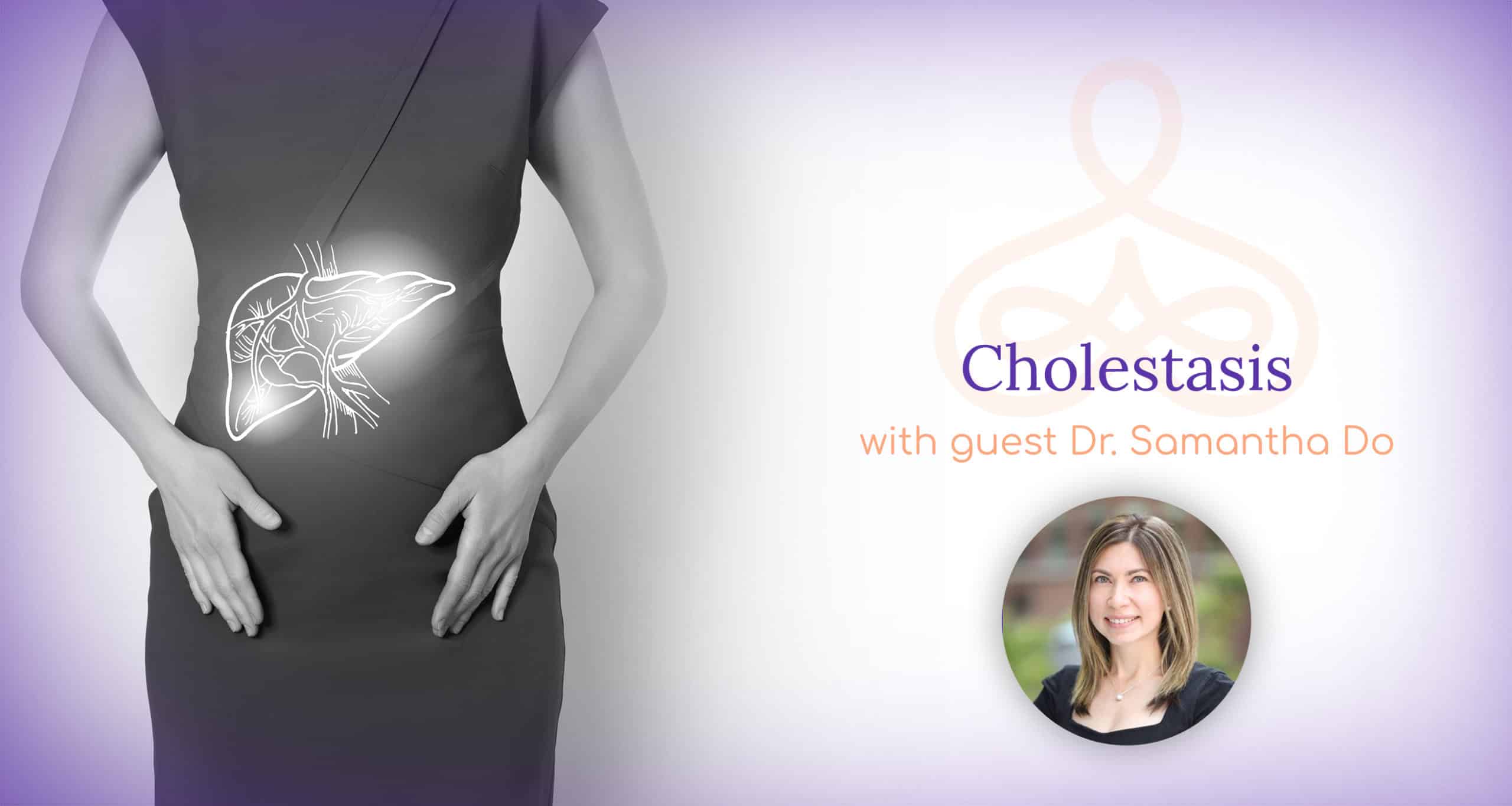In this episode of Healthful Woman podcast, Dr. Fox and Dr. Do discuss intrahepatic cholestasis of pregnancy, more commonly called ICP or cholestasis.
Intrahepatic cholestasis of pregnancy, or ICP is a liver disorder that occurs during pregnancy. When we break this term down, intrahepatic means “in the liver” and cholestasis is related to bile. Bile is the substance that our liver makes, is stored in the gallbladder and then gets released into our intestines to help us process fat. In ICP, women have increased bile acids that are not getting properly transported and can cause problems for the fetus.
While this disorder is not very dangerous for the mother, it can be dangerous for the fetus. It also causes a strange symptom for mothers, which is severe itching. “It’s really intense itching, particularly of the palms and soles of the feet,” explained Dr. Do. “And itching that can be worse at nighttime.”
But why does this itching occur? “During pregnancy, when bile backs up, these little crystals get into circulation and lodge themselves under the skin, which causes itching,” said Dr. Fox. “When a woman complains of itching palms, that is often a sign of cholestasis in pregnancy.”
What Causes Cholestasis During Pregnancy?
While it is not completely known why some women are diagnosed with cholestasis during pregnancy and some are not, doctors do believe there is a genetic risk factor. Older women and mothers with twin or triplet pregnancies, as well as those with underlying liver diseases are also at an increased risk. It has also been found to be more common in certain areas of the country and world, so there may be an environmental component as well.
Why is Cholestasis During Pregnancy a Concern?
Overall, the main concern is that having cholestasis puts the baby at increased risk for stillbirth. The reason for this is unknown but may be because the bile acids that are in the mom’s circulation can cause constriction of placental blood vessels. They may also cause the baby to have a fetal arrhythmia that leads to stillbirth.
If you are at an increased risk for cholestasis or your provider believes you may have cholestasis during pregnancy, you may be asked to take some blood tests. “The two things we’re going look at are the liver enzymes in general and the real diagnostic test is looking at the bile acids.” Said Dr. Do. “In general, we use the total number of the bile acids but we can look at the various components of the bile acids also.” The total bile acids are normally less than 10. Total bile acids above 10 are diagnostic of cholestasis. The higher it gets, the higher the risk.
Once a woman has been diagnosed with cholestasis, medication should be started. Providers often prescribe a medication called Actigall or Ursodiol that is taken 2-3 times per day. It is very effective in decreasing severe itching. This medication helps the liver process the bile acids. It may also lower bile acids at the same time. And while you might think that lowering bile acid levels would lower the risk of fetal death, this is not necessarily the case. Because of this, your provider will not rely on this medication alone. “The biggest factor in decreasing the risk of stillbirth, I believe, is delivering early,” said Dr. Fox.
“Our thought process is that stillbirth with cholestasis happens suddenly but usually late in pregnancy; on average around 38 weeks,” explained Dr. Do. “So, we discuss delivering before that time. We deliver as early as 36 weeks with cholestasis to prevent going on to have a stillbirth with continuing pregnancy.” In deciding on the exact timing of delivery, we consider the risks of preterm and early-term delivery balanced against the risk of stillbirth. As the risk of stillbirth rises with higher levels of bile acids, the exact timing of delivery is often individualized for each patient.
Schedule a Consultation
If you have an underlying liver disease or believe you may have intrahepatic cholestasis in pregnancy, please contact Carnegie Women’s Health today. Our expert team of OB/GYNs will be happy to meet with you to diagnose and treat you during pregnancy.

